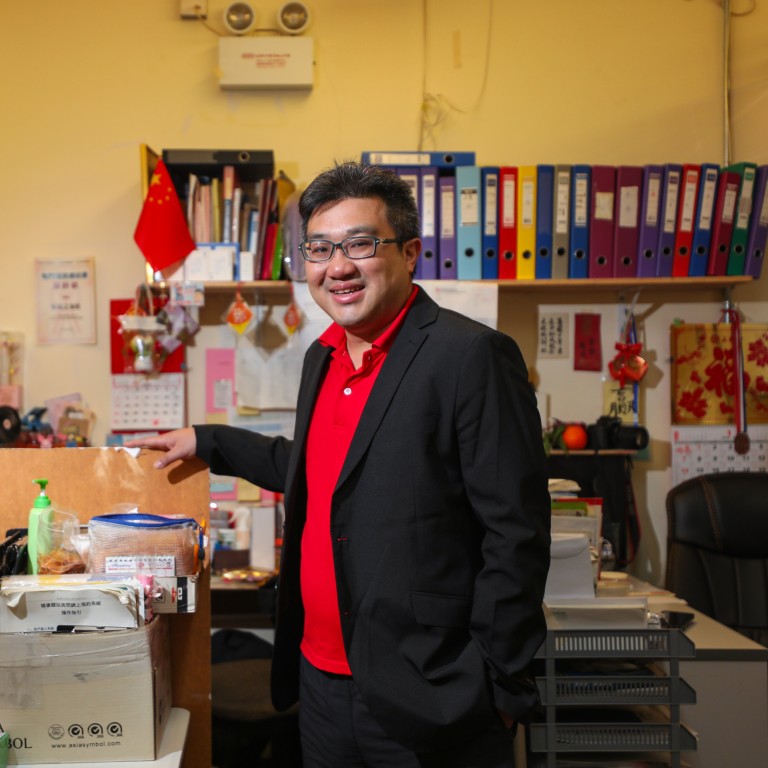
Hong Kong district councillors juggle demands of serving enlarged wards, some say it’s hard to make ends meet
- Subsidies do not stretch far enough to cover rents, assistants’ pay and other expenses, councillors say
- More residents turn to elected councillors for help because appointed ones are ‘not yet recognisable’
New Hong Kong district councillor Ken Fung Pui-yin has developed a major headache doing his sums after beginning his four-year term on January 1.
He needed an office in his Tuen Mun East constituency. He applied for one of 17 public housing flats offered by the Housing Authority to the 32 Tuen Mun council members.
If his bid succeeds, the rent will be HK$6,000 to HK$7,000 (US$767 to US$895) per month. If it fails, a private space will cost him HK$15,000 to HK$18,000 – almost 40 per cent of his monthly government subsidies.
After paying one full-time assistant and a part-timer, he said he was left with only HK$7,500 for everything else from utilities to producing publicity materials.
“The government’s limited resources fall short in supporting a district councillor in an enlarged constituency,” the 38-year-old journalist turned full-time councillor said.
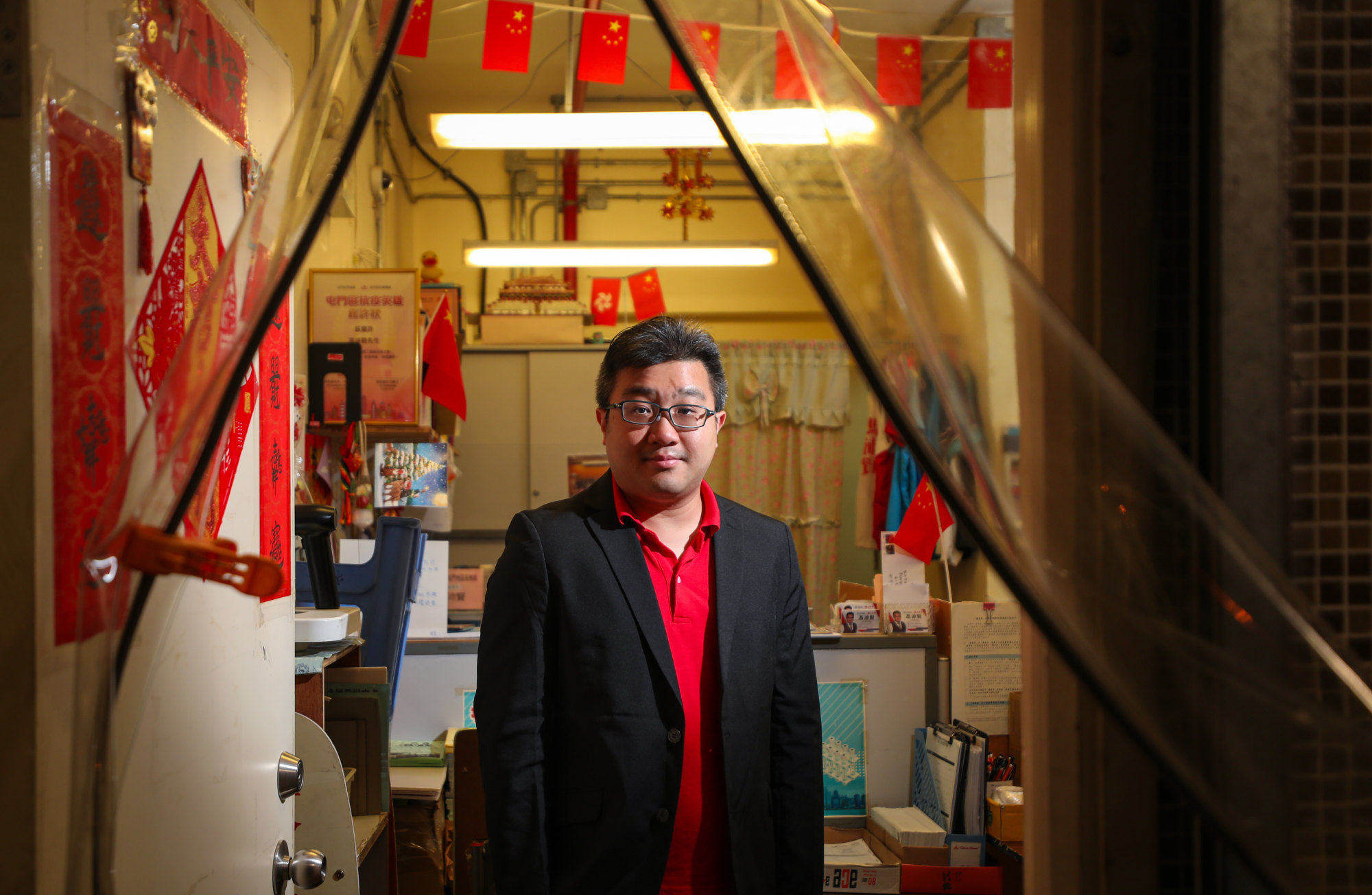
He was among district councillors who told the Post that their first month at work left them coming to grips with various realities, including the lack of resources.
Working arrangements and the division of labour among councillors were not yet clear, some said. Others realised their residents had no idea who they were.
Of the 470 councillors, 88 were directly elected in 44 enlarged geographical constituencies, while the rest were chosen by area committees or appointed by Chief Executive John Lee Ka-chiu.
Each councillor gets HK$49,512 a month for operational fees and a one-off subsidy of HK$120,000 to open a constituency office. Full-time councillors are paid HK$37,520 a month.
In the previous district council set-up, a councillor was in charge of an area with about 10,000 to 15,000 residents. With the revamp, someone such as Fung serves close to 150,000 people as his constituency combines 10 old ones.
He is one of six Tuen Mun councillors who were directly elected, with another 12 chosen by the district committee, 13 appointed by the city leader and one ex officio member.
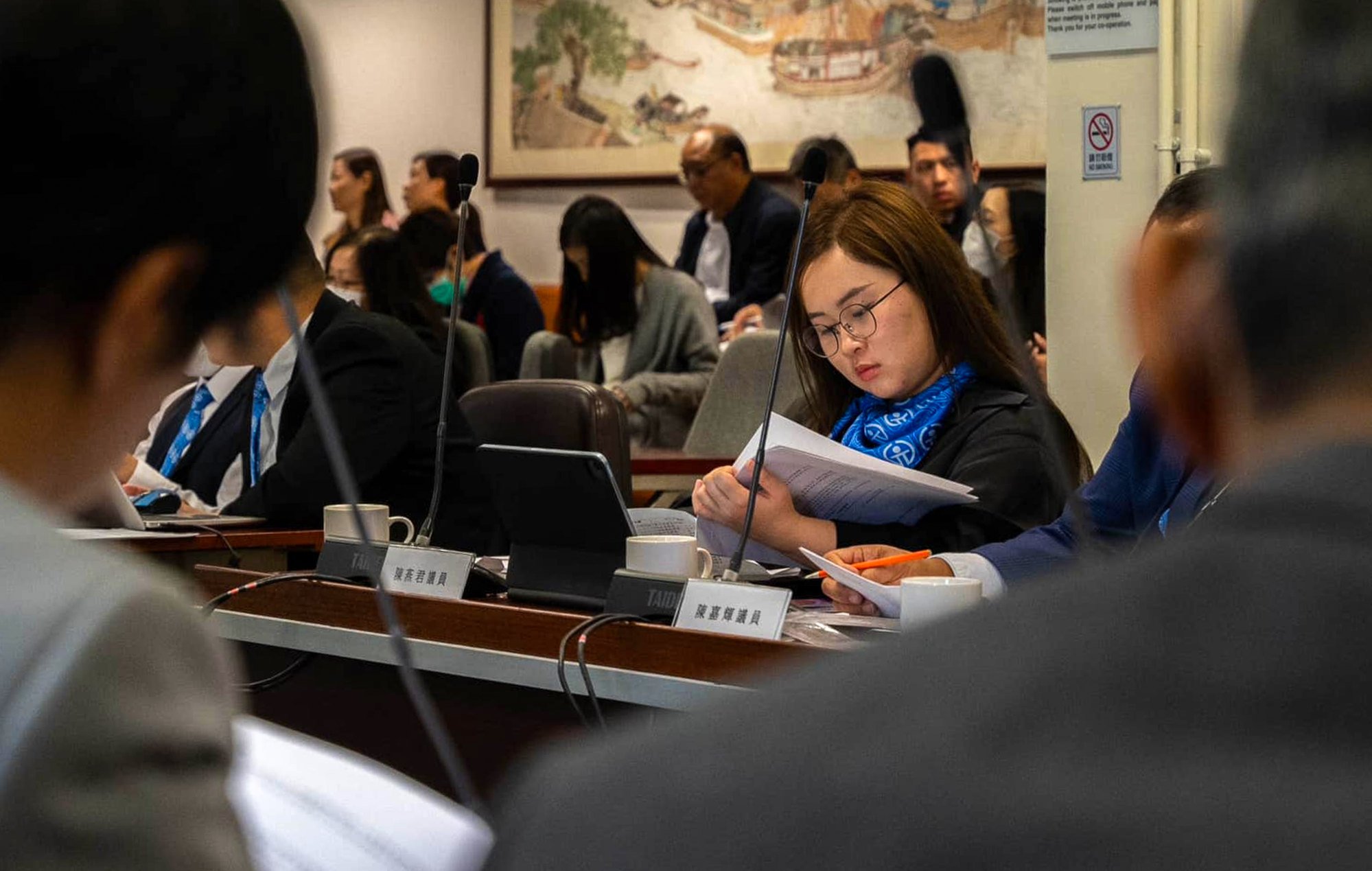
Fung said more than a dozen residents turned up daily at his temporary office and two or three others would call for all sorts of help. But he was also expected to go out and meet people.
“I don’t think the manpower I have is enough to serve 150,000 people,” he said.
He said the unclear division of work among councillors added to his workload, as residents and even government officials tended to contact the directly elected councillors, being unfamiliar with the others.
Overloaded server caused system crash during Hong Kong’s district council poll
“If the workload continues without more subsidies provided, I don’t think the job is sustainable,” he said.
Directly elected councillor Yankie Chan Yin-kwan, who serves in the Tin Shui Wai South and Ping Ha constituency of Yuen Long district, shared Fung’s concerns, describing her workload in the first month as “insane”.
She said people tended to recognise the directly elected councillors who were more visible and were out in the streets before the December election.
“If residents are not familiar with you, they just won’t go to you when problems arise,” she said.
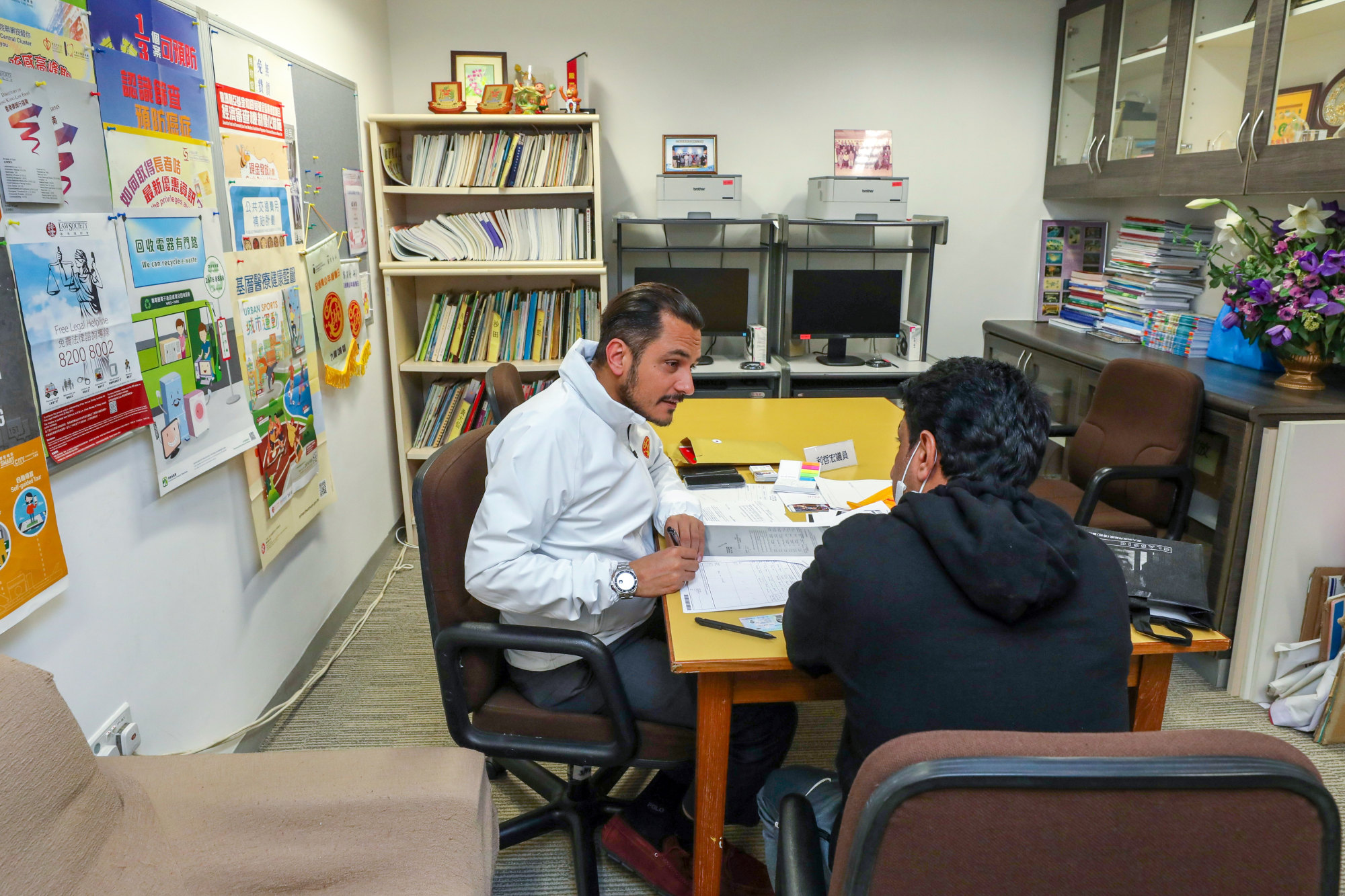
Secondary school vice-principal Rizwan Ullah, who was appointed by the city leader to the Kowloon City district, said: “It is an established fact that appointed members are less known to many local residents, and it takes time to become a familiar face.”
The councillor of Pakistani origin usually meets residents in the evenings, after he finishes work. He said he was handling six cases so far, mostly from people of ethnic minority backgrounds.
Hong Kong printed 1.5 million posters, leaflets for district council election
Many of the 179 councillors appointed by the city leader hold full-time jobs.
Every district councillor is required to operate a constituency office for no less than 40 hours a week, and take turns to attend weekly meet-the-people sessions meant to keep them closer to the communities they serve.
At a two-hour session attended by Rizwan and two other councillors on January 25, the Post observed that only two residents came to see them.
Rizwan said there was not yet a clear division in work among the 20 Kowloon City councillors, but insisted that internal communication was smooth, and that helped.
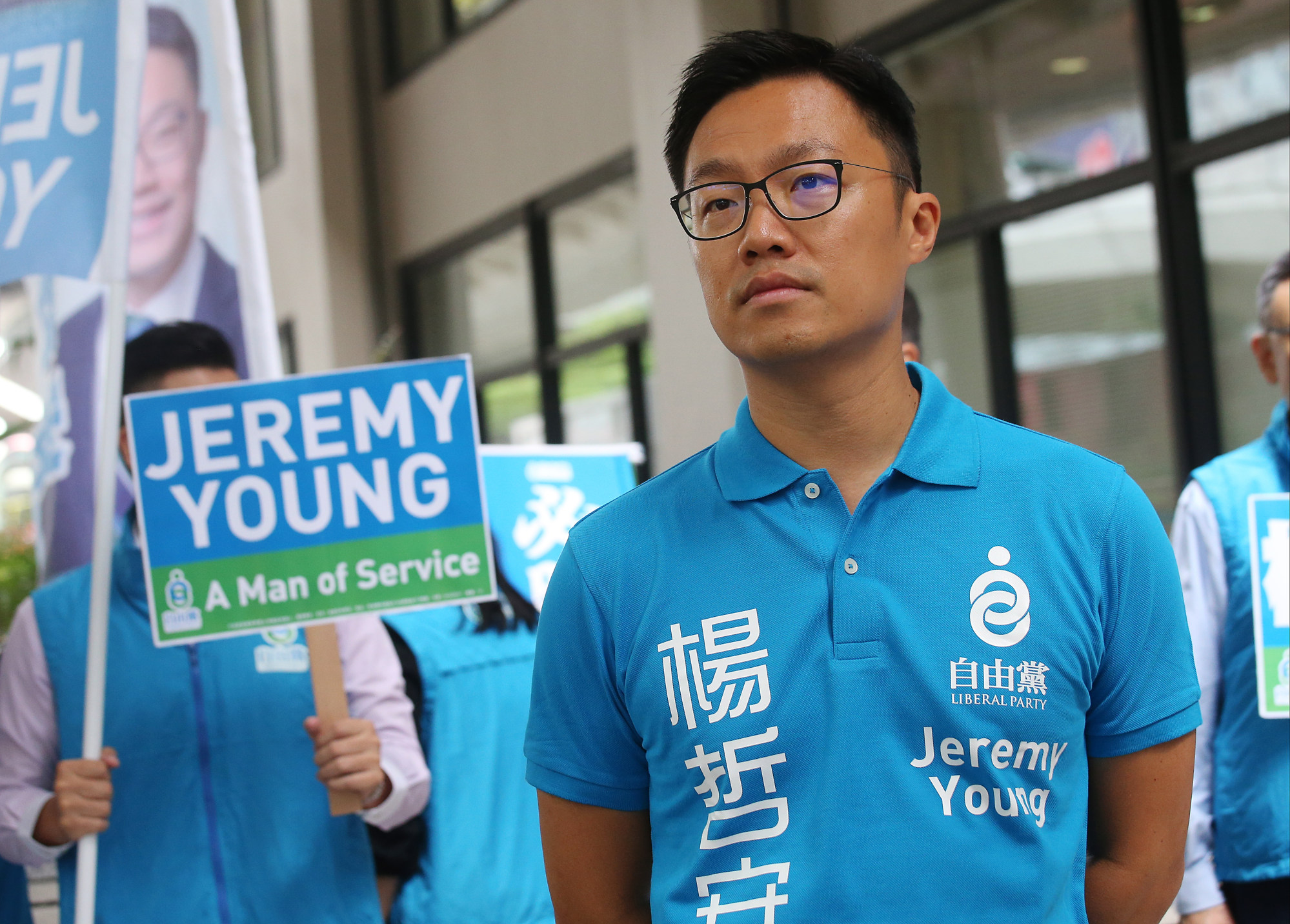
Jeremy Young Chit-on, a former directly elected councillor who was appointed to Central and Western district, said there was no overlap in work, but gaps existed, such as discussing who should serve residents living in Central, and how to do so.
Being in an area where rents were often higher than elsewhere, he expected that the district would see two or three councillors sharing a joint office to make optimal use of their government allowances.
Hong Kong’s first ‘patriots-only’ district poll is ‘real, functioning democracy’
But Chan in Yuen Long told the Post that councillors in her district were told to open individual offices, not joint ones, to allow residents to receive help in as many places as possible.
Secretary for Home and Youth Affairs Alice Mak Mei-kuen has agreed to a request of councillors to open more service offices to engage with the public.

